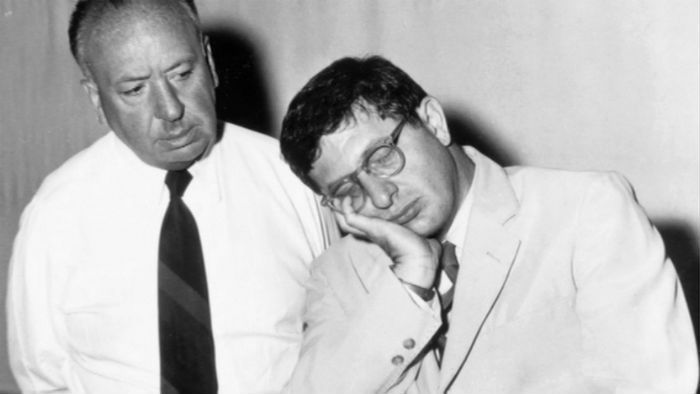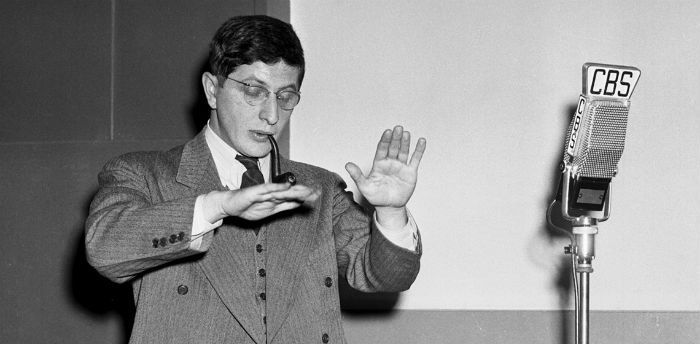Bernard Herrmann is best known for composing motion picture scores for more than 30 years, starting in 1941 during Hollywood’s Golden Age until his death in 1975. Many of the films with his soundtracks have become classics, well-known for the actors, the story, and the music. Here is a look at some of his memorable scores with particular note given to his long-standing collaboration with Alfred Hitchcock.
Herrmann was born in New York City and won his first composition prize at the age of 13. He studied conducting and composition at New York University and the Juilliard School. While still a student, he made his conducting debut on Broadway and formed the New Chamber Orchestra which gave concerts in New York and Washington, D.C. of music that was rarely heard. He was hired by the Columbia Broadcasting System (CBS) in 1933 as a composer for radio programs, and was soon appointed as conductor for the CBS Symphony Orchestra.
While composing for radio dramas, he met and worked with the actor, Orson Welles. When Welles directed the 1941 movie, Citizen Kane, he had Herrmann compose the score. This was not only the composer’s first film score but also his first Academy Award nomination. His only Oscar win was for his second film, also in 1941, The Devil and Daniel Webster.
His long collaboration with Hitchcock resulted in writing the music for seven films: The Trouble with Harry (1955), The Man Who Knew Too Much (1956), The Wrong Man (1956), Vertigo (1958), North by Northwest (1959), Psycho (1960), and Marnie (1964). Out of this group came his most memorable soundtrack, Psycho.

He had the ability to write music that would enhance scenes so audiences would feel the tension and emotions displayed on the screen. This was true whether it was the rolling waves crashing against the rocks in the romantic The Ghost and Mrs. Muir (1947), the dizzying fear of heights and of falling in Vertigo, the mystery and guilt of Obsession (1976) (posthumously released), or any of the 50 movies with soundtracks by Herrmann. When he wrote the music for Psycho, he was dealing with a reduced music budget and disagreements with Hitchcock.
Hitchcock originally wanted a jazz score for Psycho and did not want any music in the shower scene. Herrmann frequently ignored what directors suggested and this film was no exception. Since he was faced with a lower budget, he used only strings for the entire score. To create the screeching music for the shower scene, he made use of different techniques for violins of plucking the strings, tremolos, and harmonics.
Herrmann served as sound consultant for the Hitchcock thriller, The Birds (1963). There was no soundtrack in the traditional sense but only electronically produced bird calls and other sounds. Hitchcock and Herrmann ended their collaboration abruptly after the composer had written the score for Torn Curtain (1966). Hitchcock and the studio wanted a jazz and pop soundtrack in keeping with the Hollywood trend during the 1960s. Herrmann refused and another composer was brought in to write the music.
The music from Psycho and from many of his other films has been made into suites for orchestra. The last score he wrote was for Martin Scorcese’s Taxi Driver (1976). He had finished conducting for the recording and died of a heart attack a few hours later. Film composers continue to name Bernard Herrmann as a major influence and the American Film Institute’s list of 25 greatest film scores ranks his music for Psycho as the fourth greatest film score of all time and his score for Vertigo is number 12 on the list.

